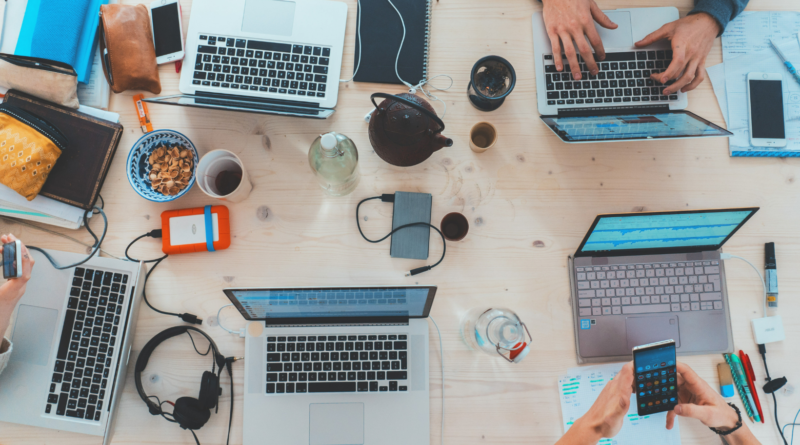How Does the Overuse of Technology Impact Mental Health?
Technology has undoubtedly transformed our lives, offering countless conveniences and opportunities. However, as we become increasingly dependent on digital devices for communication, work, entertainment, and even socializing, concerns are growing about the effects of technology overuse on mental health. From smartphones and social media to constant connectivity and the rise of digital platforms, it’s important to understand the potential psychological impacts of overusing technology and how we can address them.
In this article, we’ll explore how the overuse of technology can affect mental health and offer practical suggestions on mitigating these effects.
1. Increased Anxiety and Stress
One of the most notable impacts of excessive technology use is the rise in anxiety and stress. The constant stream of notifications, emails, and social media updates creates a sense of being always “on.” This leads to heightened stress levels as individuals feel the need to be constantly responsive and connected.
The Risks
- Information Overload: With so much information at our fingertips, we can easily feel overwhelmed by the constant influx of news, messages, and updates. This can lead to a sense of mental exhaustion and increased anxiety.
- Fear of Missing Out (FOMO): Social media platforms often highlight the best moments of others’ lives, making users feel left out or inadequate. FOMO can contribute to stress, as individuals may feel they need to keep up or compare themselves to others.
The Solution
To combat anxiety and stress, it’s important to set boundaries around technology use. Turn off non-essential notifications and designate “phone-free” times to relax and recharge. Practicing mindfulness and digital detoxes can help reduce anxiety caused by constant connectivity.
2. Sleep Disruptions
The overuse of technology, especially late at night, has a significant impact on sleep quality. Many people find themselves scrolling through their phones, watching videos, or engaging with social media before bed. This not only delays bedtime but can also affect the quality of sleep.
The Risks
- Blue Light Exposure: The screens of smartphones, tablets, and computers emit blue light, which interferes with the production of melatonin, the hormone that regulates sleep. This can make it harder to fall asleep and disrupt the natural sleep-wake cycle.
- Mental Stimulation: Engaging with digital content right before bed—whether it’s news, work-related emails, or social media—can keep the mind overly stimulated, making it difficult to unwind and relax.
The Solution
To improve sleep, establish a technology curfew by avoiding screens for at least 30 minutes to an hour before bedtime. Consider using blue light filters on devices in the evening or opting for a book or relaxing activity instead. Creating a bedtime routine without digital distractions will help promote better sleep.
3. Social Isolation and Loneliness
While technology allows us to stay connected, paradoxically, overuse can lead to social isolation. Many individuals spend more time interacting with devices than with people face-to-face. While digital communication is convenient, it cannot replace the emotional connection gained through in-person interactions.
The Risks
- Surface-Level Relationships: Online communication often lacks the depth and nuance of face-to-face conversation, leading to superficial relationships that may not provide the emotional support needed to maintain good mental health.
- Loneliness: Excessive screen time can cause individuals to feel more isolated, as they prioritize digital interactions over real-world relationships, leading to feelings of loneliness and disconnection.
The Solution
To mitigate loneliness, prioritize in-person interactions with family and friends. Set aside time for social activities that don’t involve screens, such as going for walks, dining out, or engaging in hobbies. This helps foster deeper, more meaningful relationships that contribute positively to mental well-being.
4. Depression and Self-Esteem Issues
Overuse of social media can have a particularly detrimental impact on mental health, contributing to depression and self-esteem issues. Social media platforms encourage comparison, where individuals often compare their lives to the seemingly perfect lives of others. This comparison can trigger feelings of inadequacy and dissatisfaction.
The Risks
- Social Comparison: Constantly comparing oneself to the curated and idealized versions of others’ lives on social media can lead to feelings of inadequacy, low self-worth, and depression.
- Cyberbullying: Social media and online platforms can expose individuals, especially teenagers, to cyberbullying and negative comments, which can significantly affect mental health and self-esteem.
The Solution
To protect mental health, it’s important to limit time spent on social media or unfollow accounts that lead to negative emotions. Engaging in positive, supportive online communities and seeking professional help if needed can also improve self-esteem and reduce the risk of depression.
5. Decreased Attention Span and Cognitive Fatigue
The constant bombardment of digital content has led to a decline in attention span and an increase in cognitive fatigue. With technology offering instant gratification and frequent distractions, the ability to focus for extended periods is diminishing.
The Risks
- Shortened Attention Span: Constantly switching between apps, notifications, and tabs can make it difficult to concentrate for long periods, leading to poor productivity and a feeling of mental exhaustion.
- Cognitive Fatigue: Overuse of technology can result in mental fatigue, making it harder to focus and think clearly. The brain becomes overloaded with information, reducing the ability to process and retain knowledge.
The Solution
To combat cognitive fatigue, consider setting digital boundaries, such as limiting the use of technology for specific tasks or times of the day. Practicing techniques like the Pomodoro method, which involves working in focused intervals, can help improve attention span. Taking regular breaks away from screens also provides the brain with much-needed rest.
6. Addiction and Dependency
The overuse of technology can lead to addiction or digital dependency, particularly when it comes to smartphones, social media, and video games. This addiction can negatively impact daily life, relationships, and mental health.
The Risks
- Technology Addiction: Similar to other forms of addiction, excessive technology use can lead to compulsive behavior, where individuals feel the urge to check their phones or social media accounts constantly, even when it’s not necessary.
- Negative Impact on Relationships: Technology addiction can strain relationships as individuals may prioritize their digital lives over spending quality time with loved ones.
The Solution
To address digital addiction, it’s essential to take planned breaks from technology. Apps and features that track screen time usage can help individuals become more aware of their technology habits. In extreme cases, seeking professional help for digital addiction may be necessary.
7. Impact on Mental Resilience and Coping Mechanisms
Technology can sometimes prevent individuals from developing healthy coping mechanisms for stress and mental challenges. Instead of facing problems directly, people may turn to technology as a distraction or quick fix.
The Risks
- Avoidance: Turning to technology as a way to avoid real-life issues can prevent individuals from developing effective coping strategies and mental resilience.
- Escapism: Overuse of entertainment platforms, gaming, or social media can lead to escapism, where individuals retreat into a digital world to avoid dealing with their emotions or real-world problems.
The Solution
Encouraging individuals to face challenges directly and find healthy coping strategies is essential. Engaging in physical activity, practicing mindfulness, journaling, or seeking therapy are positive ways to build resilience and manage stress without relying on technology.
Conclusion
The overuse of technology, while offering many conveniences, can have serious consequences for mental health. From increased anxiety and sleep disruptions to social isolation and addiction, the impact of excessive screen time is far-reaching. However, by setting boundaries, engaging in offline activities, and prioritizing face-to-face interactions, we can mitigate the negative effects of technology on mental well-being.
It’s crucial to find a balance between utilizing technology and maintaining our mental health, ensuring that technology enhances our lives rather than diminishing our psychological well-being.

